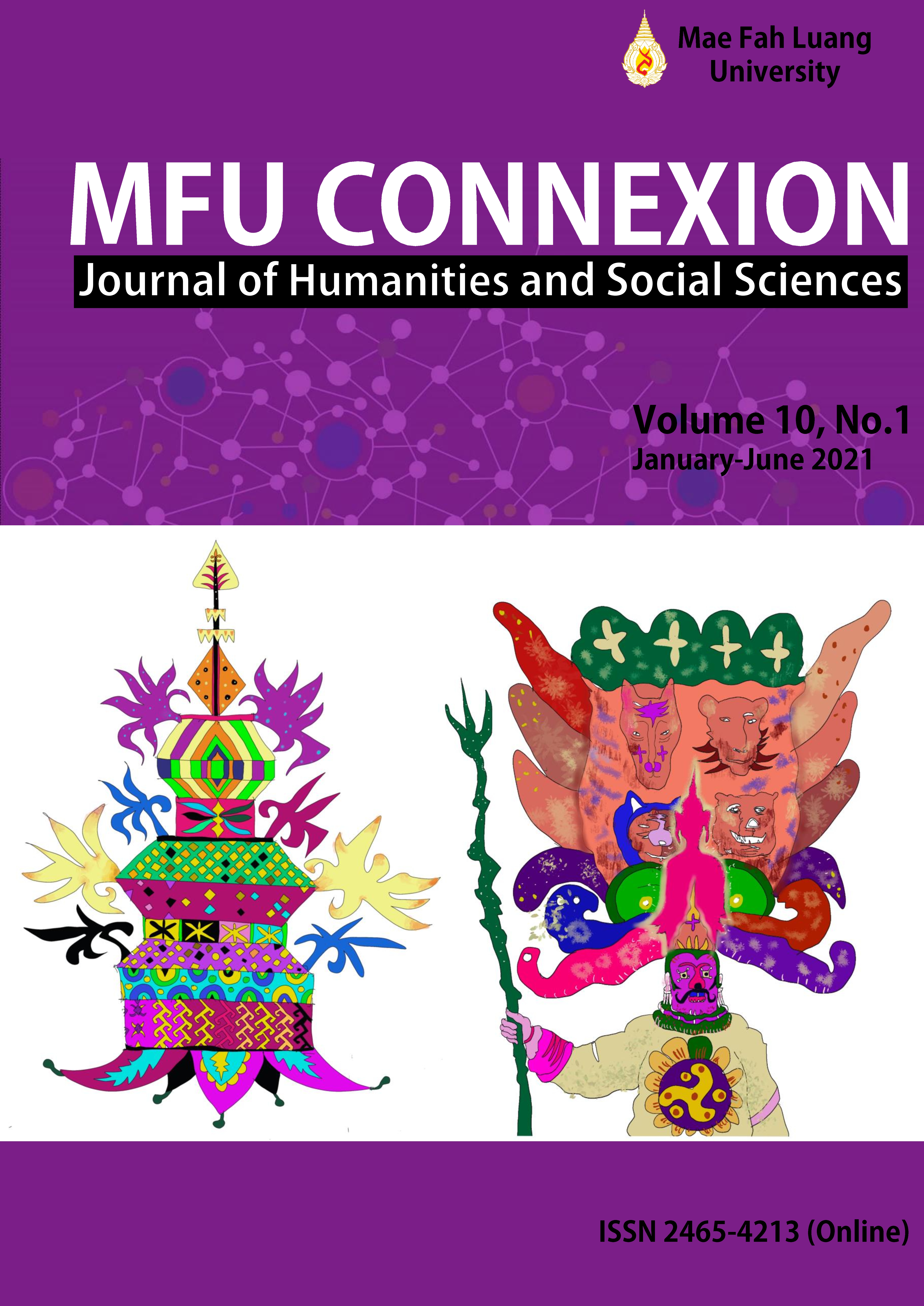“The Appearances of Yoni” in Ancient Lanna Manuscripts: The Power Relations between Men and Women
Main Article Content
Abstract
This research aims to study the beliefs about “yoni” (external female genitalia) described in ancient Lanna manuscripts [pap-saa and palm-leaf] total 30 pieces and to examine the power relations between men and women. There are four types of beliefs as follow: (1) family relations (2) family’s socioeconomic and social status (3) the appearances of yoni concerning sexual behavior and (4) the beauty of yoni relates to men’s ideology.
In part of the power relations between men and women, four dominant areas were categorized and analyzed respectively which are knowledge, belief, economic, and social space. It is also found that women have fewer power relations than men in terms of knowledge and social spaces. On the contrary, women have more power relations than men in terms of belief and economic spaces.
Article Details
Copyright
Connexion: Journal of Humanities and Social Sciences has an exclusive right to publish the accepted articles in any form. However, the author retains the following rights:
1. The right to the ownership of the article;
2. The right to use all or part of the article in his/her other works;
3. The right to re-produce the article for personal use or for use in the author’s organisation, in which case the author must obtain permission from Connexion: Journal of Humanities and Social Sciences;
4. The right to make copies of all or part of the work for educational use or for the author’s use in classroom teaching; and
5. The right to include the work (both the preprinted and printed versions) in an institutional repository.
References
Kasempholkul, A. (2007) Amorous nirvana: Thai kamasutra (ผูกนิพพานโลกีย์ ตำรากามสูตรสัญชาติไทย), Bangkok: Matichon. (in Thai)
Laphimon, M. (2008) Definitions of sexual words in Thai: Power, rights and sexual wellbeing (ภาษาเพศในสังคมไทย: อำนาจ สิทธิและสุขภาวะทางเพศ), Bangkok: CDMK Printing. (in Thai)
Phiyasook, T. (2005) Lustful desire (ราคจริต), Bangkok: Bangkok Printing. (in Thai)
Puapattanakun, C. (2020) ‘The health communication about sexuality studies in the book of Naralaksana of Thailand (การสื่อสารสุขภาพเกี่ยวกับ “เพศวิถีศึกษา” ในตำรานรลักษณ์ของไทย)’, in Unraveling the knowledge of literature in Sexology (ไขความรู้วรรณกรรมตำราเพศศาสตร์), pp. 123-180, Bangkok, Samlada. (in Thai)
Office of the Royal Society. (2013) Royal Institute dictionary 2011 edition (พจนานุกรมฉบับราชบัณฑิตยสถาน พ.ศ. 2554), Bangkok: Nanmeebooks Publication. (in Thai)
Rungruangsri, U. (2004) Lanna – Thai dictionary: Mae Fah Luang edition (พจนานุกรมล้านนา-ไทยฉบับแม่ฟ้าหลวง), Chiang Mai: Ming Muang Printing. (in Thai)
Sukwisith, W. (2004) The speech act of reprimanding in Thai (วัจนกรรมการบริภาษในภาษาไทย), Master’s thesis, Chulalongkorn University, Bangkok. (in Thai)
Wongtet, P. (2001) Gender and culture (เพศและวัฒนธรรม), Bangkok: Ruen Kaew Press. (in Thai)


